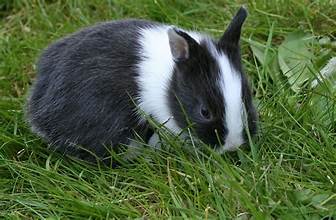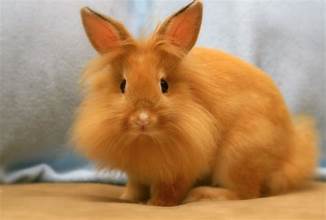Adopting a rabbit as a pet is a delightful and rewarding experience. Rabbits are known for their charming personalities, quiet demeanor, and relatively low-maintenance care compared to other pets. However, selecting the best rabbit breed for city living requires careful consideration of their specific needs.
Best Rabbit Breeds for City Living
1. Mini Rex:
Known for their velvety fur and calm nature, Mini Rex rabbits are an excellent choice for urban living. They are relatively small, making them ideal for apartments.

2. Holland Lop:
These rabbits are friendly and compact, with an average weight of 2-4 pounds. Their playful and social nature makes them excellent companions.

3. Netherland Dwarf:
As one of the most miniature rabbit breeds, Netherland Dwarfs are perfect for limited spaces. They are energetic and curious, providing endless entertainment.

4. Lionhead:
Recognizable by their woolly manes, Lionheads are small to medium-sized and have a gentle temperament. Due to their fur, they require a bit more grooming.

Dietary Needs
It’s crucial for a rabbit’s health and well-being. Here’s what you should include:
Hay:
This should comprise about 80% of your rabbit’s diet. Timothy hay, orchard grass, or meadow hay are excellent choices. Hay aids in digestion and helps keep their teeth healthy.
Fresh Vegetables:
Provide a variety of leafy greens daily, such as romaine lettuce, kale, and parsley. Avoid iceberg lettuce as it offers little nutritional value.
Pellets:
Choose high-quality rabbit pellets high in fiber and low in protein. Avoid those with added seeds, nuts, or dried fruits.
Fresh Water:
Always ensure your rabbit can access clean, fresh water—a water bottle or a heavy bowl that cannot be easily tipped over works well.
Treats:
Offer treats sparingly. Small amounts of fruit like apples, bananas, and berries can be given occasionally.
Grooming Needs
Rabbits generally do an excellent job of keeping themselves clean, but they still need some grooming help:
Brushing:
Regular brushing helps prevent fur from matting and reduces shedding. Short-haired breeds need weekly brushing, while long-haired breeds like Lionheads require daily attention.
Nail Trimming:
To prevent overgrowth and injury, check your rabbit’s nails monthly and trim them as needed.
Ear Cleaning:
Inspect their ears regularly for signs of wax buildup or infection. If necessary, gently clean the outer ear with a damp cloth.
Habitat Requirements
Creating a safe and comfortable habitat is essential for your rabbit’s well-being:
Cage or Hutch:
Choose a spacious cage or hutch with enough room for your rabbit to move around comfortably. The minimum recommended size is 4 feet by 2 feet by 2 feet. Ensure it has a solid floor to prevent sore hocks.
Litter Box:
Rabbits can be litter-trained. Use a litter box with rabbit-safe litter (avoid clay or clumping types). To encourage use, put the hay in or near the litter box.
Bedding:
Provide soft bedding like straw or hay. Always avoid cedar or pine shavings, as they can harm rabbits.
Hideaway:
Include a hiding spot where your rabbit can retreat for privacy and security.
Toys:
Provide a variety of toys to keep your rabbit mentally stimulated. Chew toys, tunnels, and cardboard boxes are great options.
Health Issues
Being aware of common health issues and signs of illness is vital:
Dental Problems:
Overgrown teeth can cause serious health issues. Ensure your rabbit has plenty of hay and chew toys to wear down their teeth naturally.
Gastrointestinal Stasis:
This can be life-threatening, and it happens when the digestive system slows down or stops. Symptoms include reduced appetite and more minor or no fecal pellets. Immediate veterinary attention is required.
Respiratory Infections:
Look for signs like sneezing, nasal discharge, and difficulty breathing. Prompt vet care is essential.
Parasites:
Regularly check for fleas, mites, and other parasites. Consult your vet for appropriate treatments if needed.
Exercise and Socialization
Rabbits are active creatures that need regular exercise and social interaction:
Playtime:
Allow your rabbit at least 3-4 hours of supervised playtime outside their cage daily. Use a bunny-proofed room or a secure indoor playpen.
Socialization:
You must spend quality time with your rabbit daily, petting gently and engaging in play. Rabbits thrive on interacting with you every day.
Bonding with Other Rabbits:
If you have the space and resources, consider adopting a pair of rabbits. They are naturally social and often benefit from the companionship of another rabbit.
Final Thoughts
Choosing the best rabbit breed for city living is about understanding their unique needs and providing a nurturing environment. With proper care, a pet rabbit can bring joy and companionship to your urban home. Remember to consult a veterinarian experienced with rabbits to ensure your new pet receives the best possible care.




